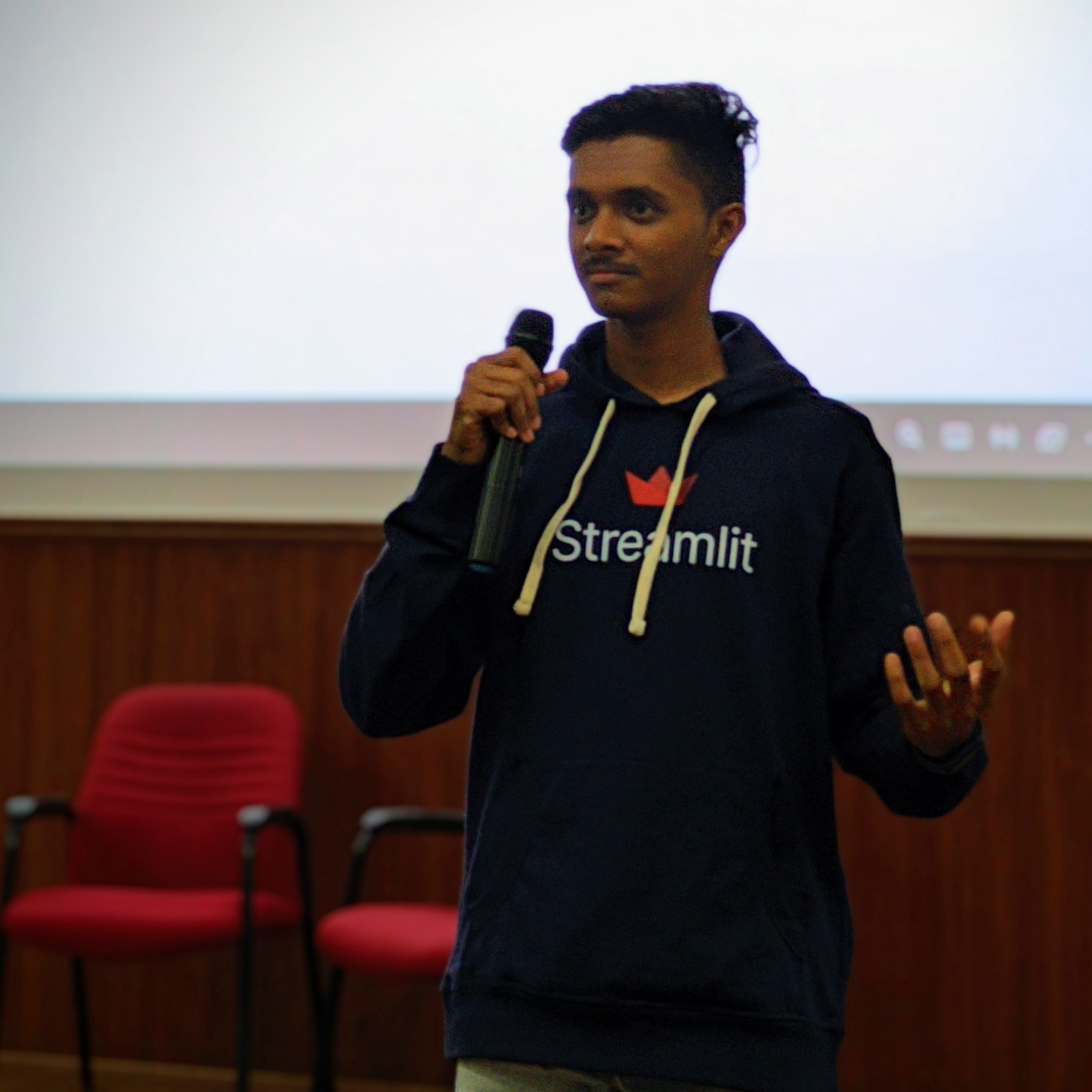My Interview Experience
 Shravan
ShravanI’ve attended multiple Interviews: Lessons Learned and Tips to Ace Them
By Shravan (He/Him), Full-Stack Developer & AI Enthusiast
Table of Contents
About Me
The Genesis of My Interview Approach
Finding Motivation
What they Look for During Interviews
Conclusion
About Me
Hi there! I’m Shravan—an AI enthusiast, Full-Stack Developer (Python, Next.js), and a soon-to-be graduate specializing in AI and ML at M.S. Ramaiah Institute of Technology. I love taking ideas from concept to code, as seen in my projects like NoteRep (which garnered 70,000+ views), an AI-powered meal planner, and even a fun puzzle game called Enigma Escape. My background includes an ML internship at Spritle Software, and I also interned at NextWealth. Currently I am an SDE Intern at Udaan - India's largest business-to-business (B2B) e-commerce platform.
If you’re a recruiter, feel free to connect with me. I’m actively exploring opportunities where I can leverage my AI and full-stack skills to build next-gen applications.
The Genesis of My Interview Approach
From August to December, I took part in interviews for different positions, including backend, ML, and full-stack roles. My interest in AI, along with my experiences playing around with LLMs and generative models, motivated me to explore the subject more deeply. Every interview turned into a chance to evaluate and improve what I knew, highlighting areas where I needed to learn more and helping me build a stronger foundation.
But why are we evaluated on data structures and algorithms (DSA) in college interviews?
Because even seemingly simple problems can reveal a lot about how we think, how we explain our approaches, and whether we truly grasp the building blocks of programming—like arrays, maps, or even a quick brute-force solution. The goal isn’t to see if someone has memorized an algorithm from LeetCode; it’s about demonstrating clear, confident reasoning that can extend to real-world problem-solving.
Finding Motivation
In my personal projects, I’ve realized that a strong grasp of fundamentals—like data structures, JavaScript event loops, and memory management—often leads to more efficient, scalable solutions. For example, while building NoteRep (a platform for sharing notes and study materials) or developing an AI Meal Planner, I had to optimize both back-end queries and front-end logic. These same principles apply not just to solo projects but also to team-based software development—and, of course, technical interviews
That’s why hiring processes emphasize core programming concepts. When a candidate claims expertise in React.js but struggles to break down a simple JavaScript concurrency issue, it raises a red flag. The best developers, in my experience, aren’t just fluent in frameworks; they have a solid command of the language’s core fundamentals, allowing them to tackle challenges beyond surface-level implementation.
What they look for During Interviews
Core Data Structures & Algorithms
- Interviewers don’t expect you to solve complex dynamic programming problems on the spot. However, if you struggle with basics like arrays, hash maps, or a simple Two Sum problem, it raises concerns about your foundational knowledge.
Real Understanding of Projects
- If you mention a fancy project on your resume—whether it’s an AI-based app or a simple CRUD system—know it inside out. It’s easy to tell when someone is bluffing about their involvement.
Event Loop & Language Internals
- For front-end or Node.js roles, questions about the event loop are common. If you’ve worked with React, Next.js, or asynchronous JavaScript, you should be able to explain how fetch promises work, how async tasks are handled, or what happens under the hood.
Curiosity & Learning Mindset
- More than just technical knowledge, interviewers pay attention to how you think. You don’t have to know everything—but being curious, honest, and open to learning goes a long way.
Every Company Has Its Own Hiring Process
- There’s no single standard for technical interviews—every company has its own approach. Some expect an exact solution, while others focus on problem-solving ability. In my case, I was able to come up with an approach and explain it on the spot, and that alone was enough to impress the interviewers.
Conclusion
The interview process shouldn’t be about trick questions or memorizing obscure algorithms. It’s meant to assess real-world problem-solving, communication (seriously, this matters a lot), and foundational knowledge.
If you’re a fellow developer preparing for SDE interviews, focus on:
Data Structures & Algorithms – Get comfortable with the basics and able to solve standard questions.
DBMS & SQL – Understand indexing, normalization, and writing efficient queries.
Object-Oriented Programming (OOPs) – Be clear on concepts like inheritance, polymorphism, and design patterns.
Operating Systems (OS) – Know about processes, threading, memory management, and scheduling.
Cloud Basics – Familiarize yourself with cloud services like AWS, Azure, or GCP, especially deployments and scaling.
Deep Understanding of Your Projects – Be able to explain how and why you built them.
Your Learning & Adaptability – Don’t shy away from discussing how you pick up new skills and solve problems.
Mastering these areas will make a huge difference in your interview performance.
I hope these insights help you in your next interview. If you’d like to chat more about my journey in AI and tech—or just want to say hi—feel free to reach out. Together, let’s keep building awesome stuff and pushing the boundaries of what’s possible!
Thanks for reading. Happy coding!
Subscribe to my newsletter
Read articles from Shravan directly inside your inbox. Subscribe to the newsletter, and don't miss out.
Written by

Shravan
Shravan
CSE Grad (AI & ML), MSRIT ’25 | Love building practical tech, contributing to open-source, and sharing my learnings. Always exploring new ideas to make tech more useful.